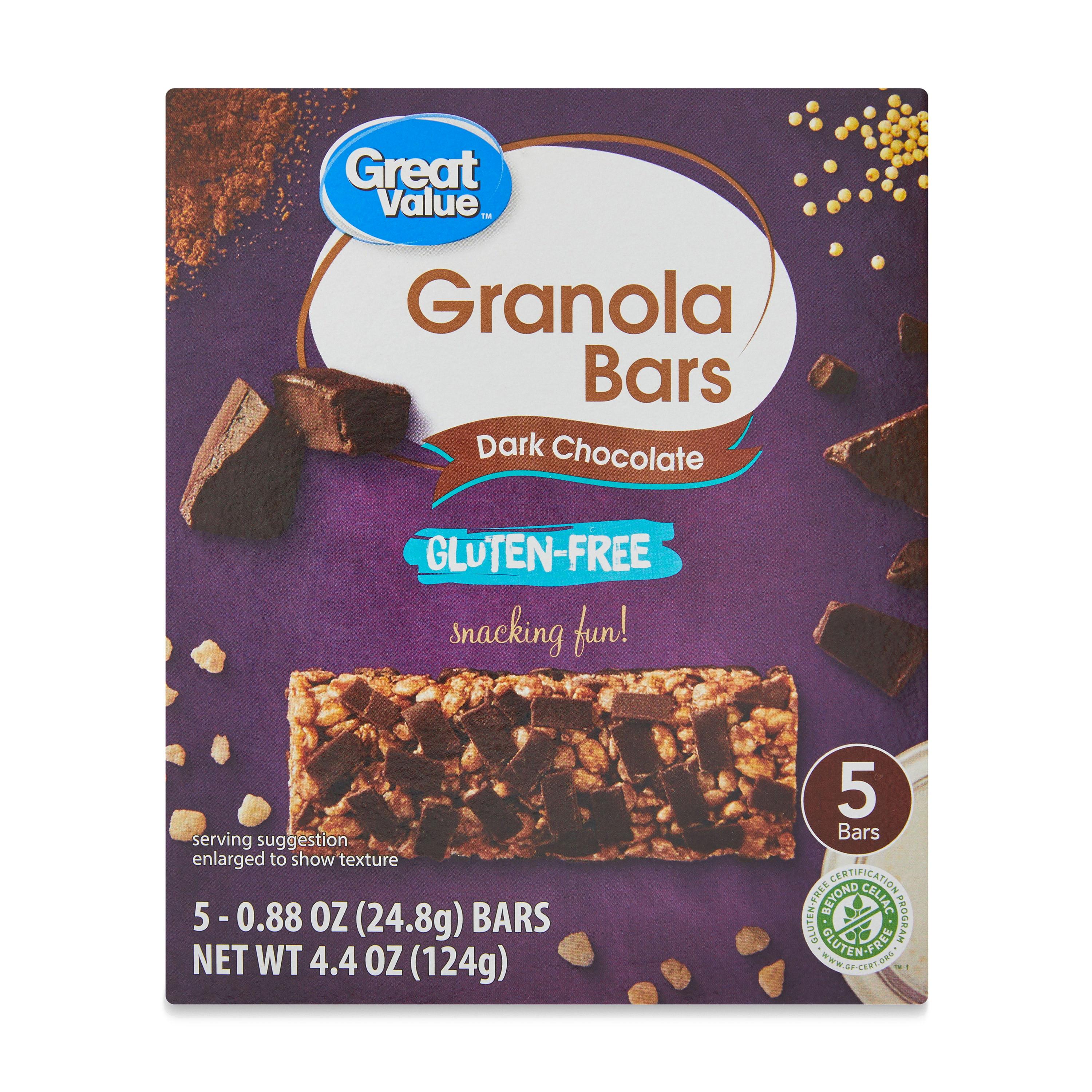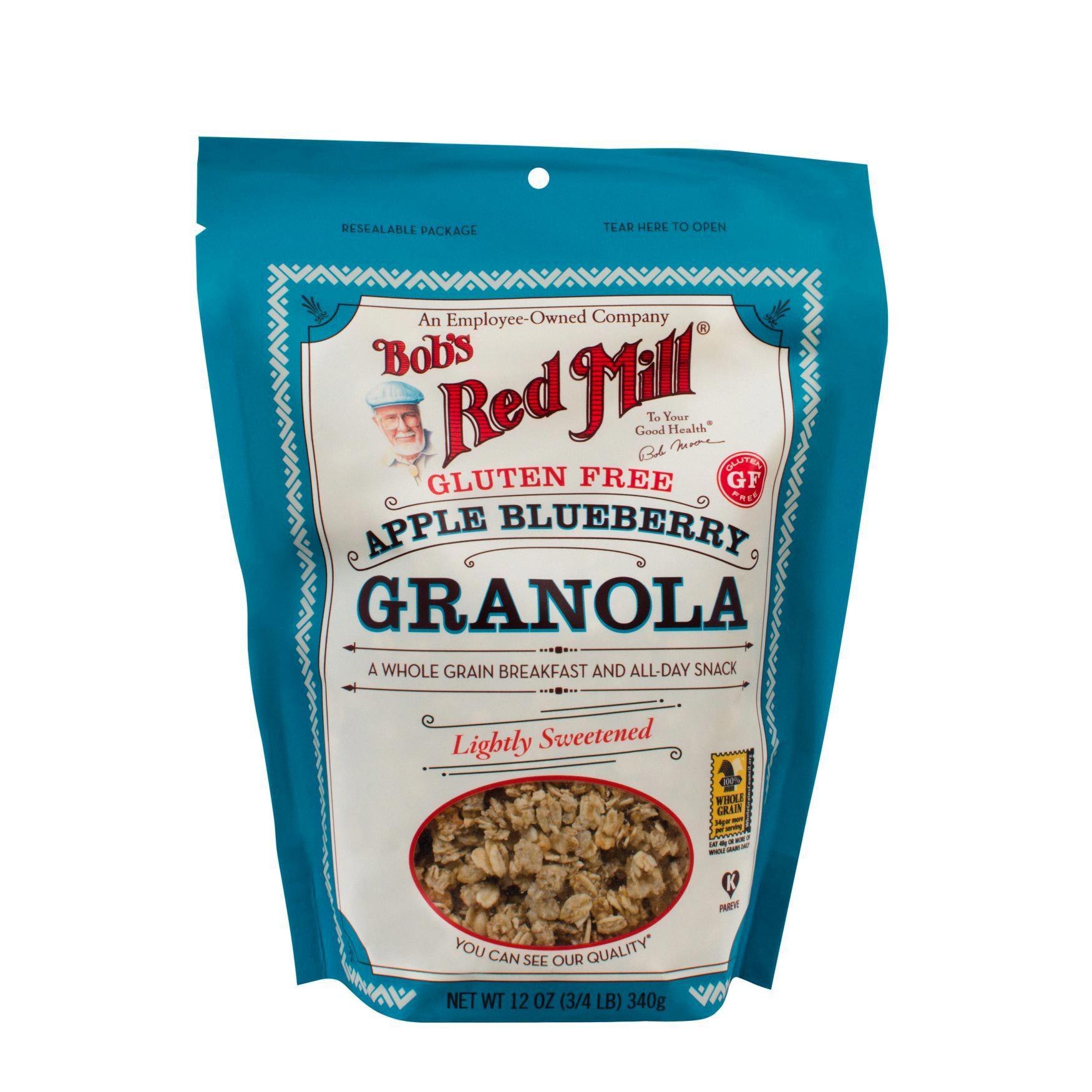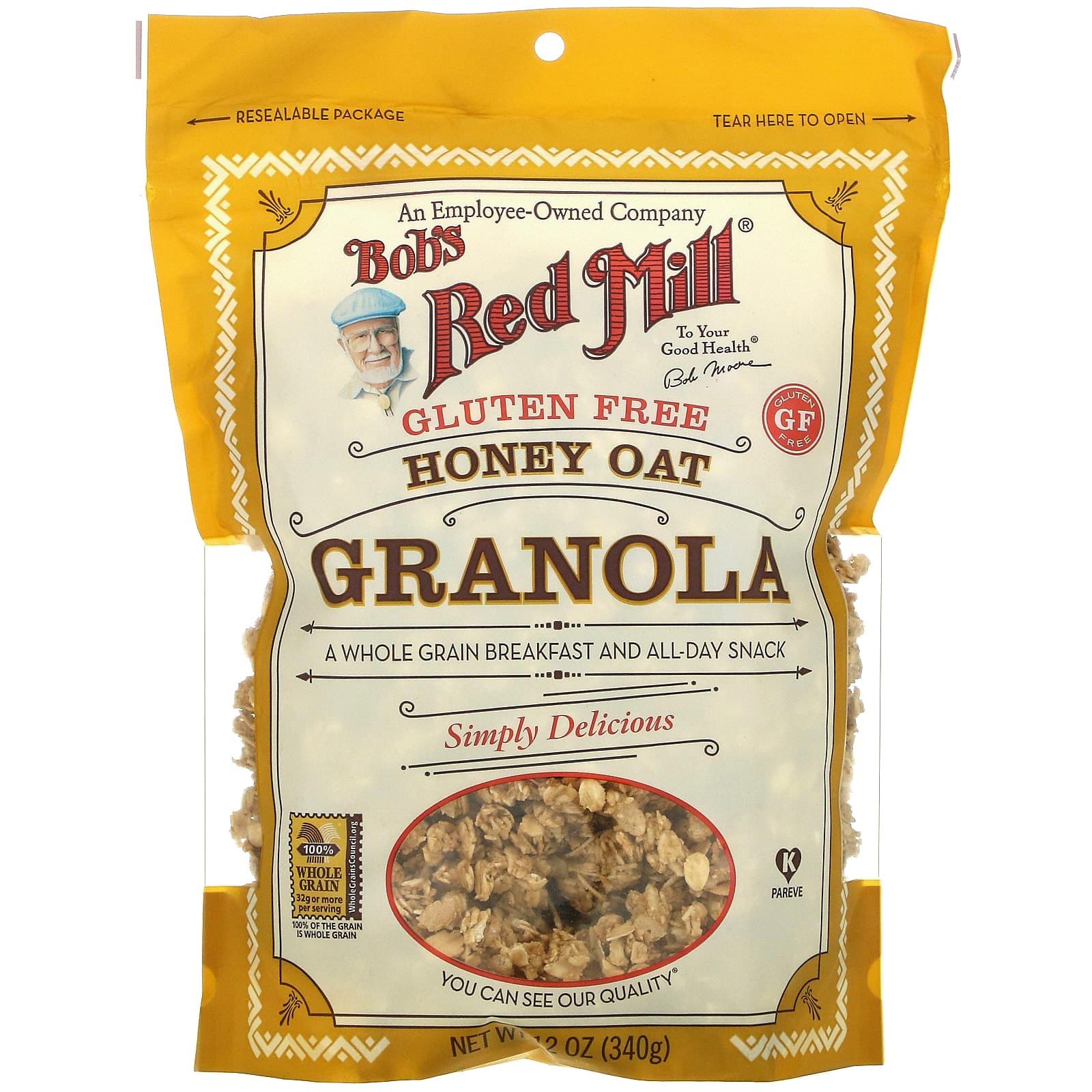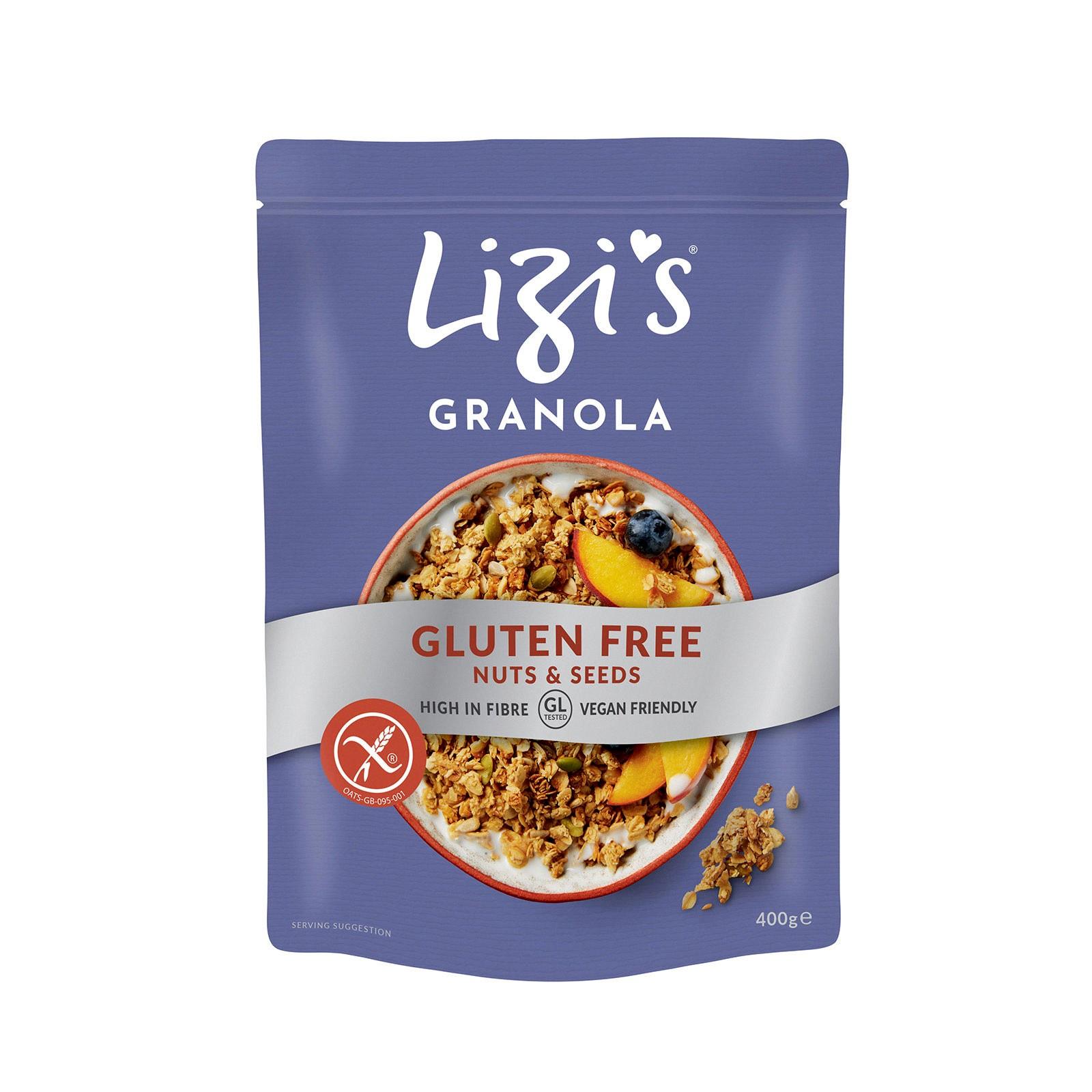Granola is a popular breakfast food and snack that is made with a mixture of oats, nuts, seeds, and dried fruits. It is a great option for those who are looking for a quick and nutritious meal, but for people with celiac disease or gluten sensitivity, the question arises: does granola have gluten?
The answer is, it depends. While oats are naturally gluten-free, some granolas contain grains that are not gluten-free, such as barley, rye, and wheat. Additionally, cross-contamination during processing can also add gluten to the final product.
It is important to carefully read the ingredients list on the granola packaging to ensure that it is gluten-free. Look for products that are specifically labeled as gluten-free, including granolas and granola bars.
Another factor to consider is the binding agent used in the granola. Traditional granolas usually use wheat flour as their binding agent, which is the most common gluten-containing grain. However, most gluten-free granolas use alternative binding agents like honey or nut butter.
If you have celiac disease or gluten sensitivity, it is aways best to choose certified gluten-free granola to ensure that it is free of gluten. Additionally, some people with celiac disease may have an immune reaction to the avenin protein in oats, which is similar to gluten, and should avoid all oats, even those labeled gluten-free.
Granola can be a nutritious and delicious food option, but it is important to check the ingredients list and look for certified gluten-free options to ensure it is safe for those with celiac disease or gluten sensitivity.
Is Granola Safe for People with Celiac Disease?
Granola can be okay for people with celiac disease as long as it is specifically labeled as gluten-free. Traditional granola often contains oats, which can be problematic for some people with celiac disease as they can have an immune reaction to the avenin protein in oats, which is similar to gluten. However, there are many gluten-free granola options availabe that are made with gluten-free oats or other grains such as quinoa or amaranth. It is important to carefully read labels and choose granolas that are certified gluten-free to ensure they do not contain any gluten-containing ingredients or have been processed in facilities that also process gluten-containing foods. Additionally, it is important to be aware of the sugar content in granola as many varieties can be high in added sugars, which can be problematic for people with celiac disease who may also have other health conditions such as diabetes.

Source: walmart.com
Why Granola Is Not Always Gluten-free
Some granolas are not gluten-free because they conain grains such as barley that are not gluten-free. While oats, which are a common ingredient in granola, are naturally gluten-free, other grains used in granola recipes may contain gluten. Additionally, cross-contamination during processing can also make granola unsuitable for those following a gluten-free diet. This can occur when gluten-containing ingredients are processed in the same facility or on the same equipment as gluten-free ingredients, leading to trace amounts of gluten in the final product. Therefore, it is important to carefully review the ingredients list and look for gluten-free certifications before consuming granola if you are following a gluten-free diet.
Does Granola Contain Flour?
Granola is a breakfast cereal that typically contains rolled oats, nuts, seeds, dried fruits, and sweeteners such as honey or maple syrup. The ingredients are mixed together and baked until crispy. While some granola recipes may include flour as a binding agent, not all granolas contain flour. Traditional granolas often use wheat flour as a binding agent, but gluten-free and paleo granolas do not contain wheat flour. Instead, they may use alternative ingredients such as almond flour or coconut flour to bind the ingredients together. Therefore, whether or not granola has flour depends on the specific recipe and the dietary requirements being considered. If you are lookig for a gluten-free or paleo option, you can find granolas that do not contain flour as a binding agent.
Is Kind Granola Gluten-Free?
Kind Healthy Grains Clusters, Peanut Butter Whole Grain Granola is gluten-free. Kind is a brand that prides itslf on using wholesome and natural ingredients in their products, and they understand the importance of catering to those with dietary restrictions. Their granola is made with gluten-free oats, and they take measures to ensure that their production facilities are free from cross-contamination with gluten-containing ingredients. Additionally, the product is certified gluten-free by the Gluten-Free Certification Organization, which means that it meets strict standards for gluten-free products. Therefore, you can be assured that Kind granola is a safe and delicious option for those who are gluten intolerant or have celiac disease.
Who Should Avoid Eating Granola?
While granola can be a healthy addition to a balanced diet, there are certain groups of people who should limit or avoid consuming it. People who are trying to lose weight or maintain a healthy weight should be cautious with granola, as it can be high in calories from added sugars and fats. Individuals with diabetes or other blood sugar concerns should also be mindful of their granola intake, as many commercial varieties contain significant amounts of added sugars.
Those with certain medical conditions, such as celiac disease or gluten intolerance, should opt for gluten-free granola varieties to avoid triggering symptoms. Additionally, individuals with nut allergies should steer clear of granola that cntains nuts or nut-based ingredients.
Lastly, it’s worth noting that some commercial granolas may contain artificial additives, preservatives, or other questionable ingredients. Those who prioritize whole, minimally processed foods may choose to avoid these products altogether.

Source: bobsredmill.com
Which Foods May Trigger Celiac Disease Symptoms?
People with celiac disease are intolerant to gluten, a protein found in wheat, barley, and rye. Consuming foods that contain gluten can trigger an immune response, leading to inflammation and damage to the small intestine. Therefore, it’s essential for people with celiac disease to avoid foods that contain gluten. Some common foods that can flare up celiac disease include bread, pasta, cereals, biscuits or crackers, cakes and pastries, pies, gravies, and sauces. Other foods that may contain hidden sources of gluten include beer, malt vinegar, soy sauce, and some processed foods. It’s crucial to read food labels carefully and choose gluten-free options to avoid any flare-ups. Additionally, some people with celiac disease may also have sensitivities to oter foods, such as dairy, so it’s important to work with a doctor or dietitian to determine any additional dietary restrictions.
Does Greek Yogurt Contain Gluten?
Greek yogurt is made from two simple ingredients: milk and live active cultures. Since neither of these ingredients contains gluten, plain Greek yogurt is gluten-free. However, it is important to note that thee is a possibility of cross-contamination with gluten-containing products during the manufacturing process. This can occur if the same equipment is used to produce products that contain gluten. Therefore, it is important to always check the label and contact the manufacturer to ensure that the Greek yogurt you are consuming is gluten-free. Additionally, flavored Greek yogurts may contain gluten-containing additives such as granola or other cereals, so it is important to read the ingredient list carefully before consuming.
Does Peanut Butter Contain Gluten?
Peanut butter is naturally gluten-free, meaning that it does not contain gluten as an ingredient. Gluten is a protein found in wheat, barley, and rye, and is commonly avoided by people with celiac disease or gluten sensitivity. It is important to note that some brands of peanut butter may contain added ingredients that do contain gluten, such as flavorings or stabilizers. However, tese ingredients are not typically found in most store-bought brands of peanut butter, which are usually gluten-free. It is always important to check the ingredients label of any food product to ensure that it is suitable for your dietary needs.
Does Oatmeal Contain Gluten?
Oatmeal itself does not inherently conain gluten, but it can become contaminated with gluten during processing. This contamination can occur if the oats are processed in facilities that also process wheat, barley, or rye, or if they are grown in fields that previously grew these gluten-containing grains.
However, it is possible to find certified gluten-free oatmeal that is free from contamination with gluten. These oats are grown in dedicated fields, processed in facilities that do not process gluten-containing grains, and undergo rigorous testing to ensure they are truly gluten-free.
If you have celiac disease or a gluten intolerance, it is important to look for certified gluten-free oatmeal to avoid any potential contamination. Additionally, it is always a good idea to check the ingredient list of any packaged oatmeal products to ensure that no gluten-containing ingredients have been added.

Source: iherb.com
The Effects of Granola on Inflammation
Granola can be an inflammatory food depending on the ingredients used in its preparation. Granolas and granola bars that are high in added sugar from sources such as corn syrup, chocolate chips, and cane sugar can contribute to inflammation. This is because added sugars caue a spike in blood sugar levels, leading to inflammation in the body. Additionally, granolas that contain refined grains and hydrogenated oils can also contribute to inflammation. However, if granola is made with whole grains, nuts, and seeds, and is low in added sugars, it can actually have anti-inflammatory properties due to the presence of fiber, antioxidants, and healthy fats. Therefore, it is important to read the ingredient list carefully and choose granola products that are low in added sugars and made with whole food ingredients to minimize the risk of inflammation.
Does Nutella Contain Gluten?
Nutella is a popular chocolate-hazelnut spread that is loved by many. If you are soeone who is sensitive to gluten, you may be wondering whether Nutella contains gluten or not. The good news is that Nutella is gluten-free. This means that it does not contain any ingredients derived from gluten-containing cereals such as wheat, barley, rye, oats or triticale. Therefore, if you are on a gluten-free diet, you can still enjoy Nutella without any worries. Nutella can be a delicious and safe option for people with gluten sensitivities, so go ahead and spread it on your toast, pancakes or use it in your baking recipes without any hesitation.
Does Cream Cheese Contain Gluten?
Cream cheese is usually gluten free, as long as it does not cntain any wheat products or additives. Full-fat cream cheese is typically safe for those who need to avoid gluten, but it’s important to read the ingredient list on any cream cheese that is labeled low-fat or fat-free. It’s also crucial to check the labels of processed cheese and cheese products, as they may contain trace amounts of gluten or wheat ingredients. Therefore, if you have celiac disease or a gluten sensitivity, it is always best to double-check the ingredient list before consuming cream cheese or any other food product.
Are Quaker Oats Gluten Free?
Quaker oats are considered gluten free because they do not contain any gluten-containing grains such as wheat, rye, or barley. However, there is a possibility of cross-contamination durng the harvesting, storage, or transportation process. This means that oats can come into contact with gluten-containing grains, which can potentially contaminate the oats. Therefore, it is important for people with celiac disease or gluten intolerance to look for oats that are certified gluten free to ensure that they are safe to consume. Additionally, it is recommended to read the ingredients list and food labels carefully to identify any possible sources of gluten in the product.

Source: lizis.co.uk
Are Quaker Oats Gluten-Free?
Quaker oats are gluten-free. However, it’s important to note that oats are naturally gluten-free, but during farming, transportation, and storage, gluten-containing grains like wheat, rye, and barley may be unintentionally introduced. To ensure that their products are safe for consumption by people with gluten sensitivities or celiac disease, Quaker has a line of gluten-free oat products called Quaker Select Starts. These products are clearly labeled on the packages and are available in stores. So, if you’re looking for gluten-free oats, Quaker is a reliable brand to consider.
Does Quaker Granola Contain Gluten?
Quaker granola does contain gluten, as it is made with whole grain oats and wheat ingredients. Therefore, it is not considered to be gluten-free. If you are looking for a gluten-free option, Quaker does offer several other products that are free from gluten, such as rice cakes, corn grits, and instant oatmeal made with certified gluten-free oats. It is always important to read the ingredient label carefully and consult with your healthcare provider if you have any concerns about consuming gluten.
Conclusion
While granola can be a healthy and nutritious snack, it is important to be mindful of its gluten content. Some granolas may contain gluten-containing grains such as wheat or barley, whle others may be cross-contaminated during processing. It is crucial to read ingredient labels carefully and choose granolas that are specifically labeled as gluten-free. If you have celiac disease or a gluten intolerance, it is recommended to avoid granolas that contain oats, as some individuals may have an immune reaction to avenin, a protein similar to gluten found in oats. However, there are many gluten-free granola options available, including vegan and paleo varieties, that can be enjoyed without compromising one’s dietary needs or preferences.
